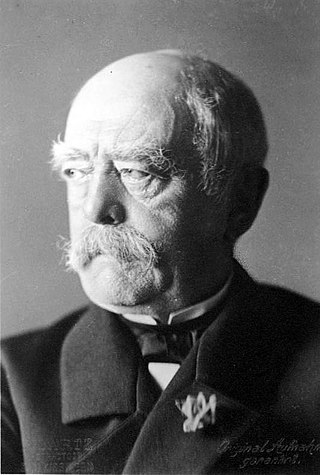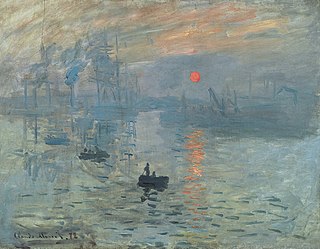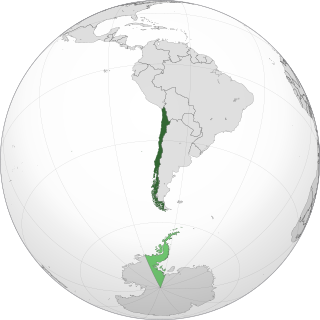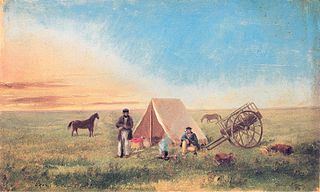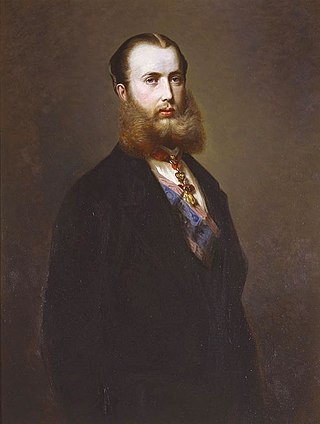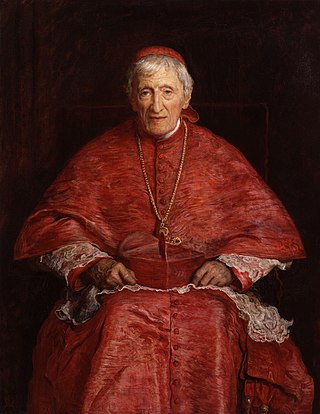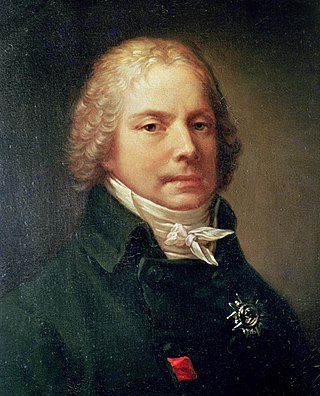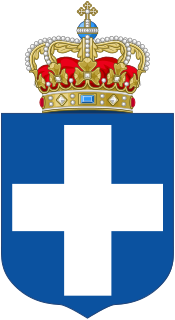FrWiki
Otto von Bismarck /ˈɔto fɔn ˈbɪsmaʁk/, duc de Lauenburg et prince de Bismarck, né le à Schönhausen et mort le à Friedrichsruh, est un homme d'État prussien puis allemand.
Charles Louis Napoléon Bonaparte, dit Louis-Napoléon Bonaparte, né le à Paris et mort le à Chislehurst (Royaume-Uni), est un monarque et un homme d'État français. Il est à la fois l'unique président de la Deuxième République, le premier chef d'État français élu au suffrage universel masculin, le , le premier président de la République française, et, après la proclamation de l'Empire le , le dernier monarque du pays sous le nom de Napoléon III, empereur des Français.
Le Saint-Empire romain germanique, comme il apparaît dans la plupart des sources francophones, est un regroupement politique, aujourd'hui disparu, de terres d'Europe occidentale, centrale et méridionale, fondé au Moyen Âge et appelé du XVIe siècle au XVIIIe siècle Saint-Empire romain de la nation teutonique ou Saint-Empire romain de la Nation germanique. Il est également appelé parfois « Premier Reich » ou « Vieil Empire », pour le différencier de l'Empire allemand fondé en 1871.
L'impressionnisme est un mouvement pictural apparu en France dans les années 1860 en opposition à l'art académique et visant à représenter le caractère éphémère de la lumière et ses effets sur les couleurs et les formes. Le groupe des impressionnistes se forme autour d'Édouard Manet, chef de file de l'avant-garde artistique dans les années 1860, qui ne participe cependant à aucune exposition impressionniste. Après plusieurs scandales et refus au Salon, la grande exposition annuelle d'artistes agréés par l'Académie des Beaux-Arts, de jeunes artistes décident de s'associer pour organiser des expositions indépendantes. Cette idée se concrétise en 1874, dans une exposition qui réunit trente artistes dont Paul Cézanne, Edgar Degas, Claude Monet, Berthe Morisot, Camille Pissarro, Auguste Renoir et Alfred Sisley. Le journaliste satirique Louis Leroy invente alors le terme « impressionnisme » à partir du tableau Impression, soleil levant de Monet, devenu depuis le nom du mouvement. Les artistes subissent d'abord des critiques violentes de la part de la presse et du public, mais sont soutenus par des collectionneurs qui permettent la tenue de leurs premières expositions, notamment Gustave Caillebotte.
La France, en forme longue depuis 1875 la République française, est un État souverain transcontinental dont le territoire métropolitain s'étend en Europe de l'Ouest et dont le territoire ultramarin s'étend dans les océans Indien, Atlantique, Pacifique, ainsi qu'en Antarctique et en Amérique du Sud. Le pays a des frontières terrestres avec la Belgique, le Luxembourg, l'Allemagne, la Suisse, l'Italie, l'Espagne, Monaco et l'Andorre en Europe, auxquelles s'ajoutent les frontières terrestres avec le Brésil, le Suriname et les Pays-Bas aux Amériques. La France dispose d'importantes façades maritimes sur l'Atlantique, la Méditerranée, le Pacifique et l'océan Indien, lui permettant de bénéficier de la deuxième plus vaste zone économique exclusive du monde.
Nicéphore III Botaniatès ou Botaneiates ou Botaniate, né vers 1001 et mort en 1081, est empereur byzantin du au .
Le Mississippi est un fleuve d’Amérique du Nord qui traverse la partie centrale des États-Unis. Il coule du Nord du Minnesota au golfe du Mexique et son cours a une orientation méridienne. Le Mississippi a une longueur de 3 766 km : seul l'un de ses affluents, le Missouri, est plus long en Amérique du Nord. La superficie du bassin versant fait du Mississippi l'un des fleuves les plus importants du monde et du Missouri-Mississippi l'un des bassins fluviaux les plus grands du monde. Pendant l'époque précolombienne, le Mississippi constitue déjà une voie de navigation dont le cours supérieur est appelé par les Ojibwés misi-ziibi, qui signifie « grand fleuve », repris en 1666 en français sous la forme Messipi. Supervisé par la Mississippi Valley Division et une commission fédérale créée en 1879, le fleuve reste encore aujourd'hui un élément fondamental de l'économie et de la culture des États-Unis.
Strasbourg est une commune française située dans la collectivité européenne d'Alsace dont elle est le chef-lieu. Elle est la préfecture du Bas-Rhin et de la région Grand Est. Capitale de la région historique d'Alsace, elle est bordée par le Rhin et directement frontalière avec l'Allemagne.
La Bibliothèque nationale de France (BnF), ainsi dénommée depuis 1994, est la bibliothèque nationale de la République française, inaugurée sous cette nouvelle appellation le par le président de la République, François Mitterrand. Héritière des collections royales constituées depuis le Moyen Âge, elle possède l'un des fonds les plus riches du monde.
Le Chili, en forme longue la république du Chili, est un pays d’Amérique du Sud partageant ses frontières avec le Pérou et la Bolivie au nord d'une part, et l’Argentine au nord-est, à l'est et au sud-est d'autre part, et dont le territoire forme une étroite bande allant du désert d'Atacama jusqu'au cap Horn. L'île de Pâques, située à 3 000 km de Valparaíso dans l'océan Pacifique, fait partie du Chili depuis 1888. La superficie du pays est de 756 102 km2. La capitale du Chili est Santiago.
Marie-Louise Léopoldine Françoise Thérèse Josèphe Lucie de Habsbourg-Lorraine, archiduchesse d'Autriche, princesse de Hongrie et de Bohême, née le à Vienne (Autriche) et morte le à Parme (Parme), est impératrice des Français de 1810 à 1814, puis duchesse de Parme, Plaisance et Guastalla jusqu'en 1847.
Georges Ier de Grèce, par son élection roi des Hellènes, est né Guillaume de Schleswig-Holstein-Sonderbourg-Glücksbourg, prince de Danemark, le à Copenhague, au Danemark, et mort le à Thessalonique, en Grèce. Deuxième souverain de la Grèce moderne et fondateur de la dynastie royale hellène contemporaine, il règne presque cinquante ans, de 1863 à 1913.
La conquête de l'Ouest est le processus de colonisation, par des populations essentiellement d’origine européenne et le gouvernement des États-Unis au XIXe siècle, des immenses territoires qui s'étendent en Amérique du Nord entre le Mississippi et l'océan Pacifique, habités jusqu'alors par les peuples dits amérindiens.
Téwodros II, 1818 - , né Kassa Hailou, est un militaire et un homme d'État éthiopien, roi des rois (negusse negest) du jusqu'à sa mort. Il est également connu sous son nom de cavalier Abba Tateq. En raison de ses exploits militaires, Téwodros est aussi surnommé Meysaw.
Le système électoral, mode de scrutin, système de vote ou régime électoral, désigne tout type de processus permettant l'expression du choix d'un corps électoral donné, souvent la désignation d'élus pour exercer un mandat en tant que représentants de ce corps (élection), ou moins souvent le choix direct (référendum) d'une option parmi plusieurs.
Ferdinand Maximilien de Habsbourg-Lorraine, né le à Vienne et mort fusillé le au Cerro de las Campanas à Santiago de Querétaro (Mexique), est un archiduc d'Autriche, prince royal de Hongrie et de Bohême, devenu empereur du Mexique sous le nom de Maximilien Ier en 1864. Frère cadet de l'empereur d'Autriche François-Joseph Ier, il épouse en 1857 la princesse Charlotte de Belgique.
Le symbolisme est un mouvement artistique européen qui se développe dans les années 1870 et qui atteint son apogée dans les années 1890. Il apparaît d'abord en poésie avant de gagner la peinture, la musique et le théâtre.
Le grand cachalot, communément appelé cachalot et parfois cachalot macrocéphale, est une espèce de cétacés à dents de la famille des physétéridés et unique représentant actuel de son genre, Physeter. Il est l'une des trois espèces encore vivantes de sa super-famille, avec le cachalot pygmée et le cachalot nain. Il a une répartition cosmopolite, fréquentant tous les océans et une grande majorité des mers du monde. Cependant, seuls les mâles se risquent dans les eaux arctiques et antarctiques, les femelles restant avec leurs jeunes dans les eaux plus chaudes.
Le canal de Panama est un canal maritime de 80 km de long, qui traverse l’isthme de Panama en Amérique centrale, reliant l’océan Pacifique et l’océan Atlantique. Sa construction a été l'un des projets d’ingénierie les plus difficiles jamais entrepris. Son influence sur le commerce maritime a été considérable, puisque les navires n’ont plus eu besoin de faire route par le cap Horn et le passage de Drake, à la pointe australe de l’Amérique du Sud. Un navire allant de New York à San Francisco par le canal parcourt 9 500 kilomètres, moins de la moitié des 22 500 kilomètres du voyage par le cap Horn.
Le royaume des Deux-Siciles est un État souverain d'Europe du Sud qui existe de 1816, année de l'unification du royaume de Sicile et du royaume de Naples, jusqu'en 1861, année de l'annexion des Deux-Siciles au jeune royaume d'Italie à la suite de l'expédition des Mille et de la deuxième guerre d'indépendance. Gouverné par quatre rois de la dynastie des Bourbons-Siciles, il s'étendait sur l'Italie du Sud et la Sicile.
Élisabeth Gabrielle Valérie Marie de Wittelsbach, duchesse en Bavière, née le à Possenhofen en Bavière (Allemagne) et morte le à Laeken, est la troisième reine consort des Belges de 1909 à 1934.
Albert, prince de Belgique, duc de Saxe, prince de Saxe-Cobourg et Gotha et héritier de la couronne belge, puis roi des Belges, est né à Bruxelles le et mort dans un accident d'escalade à Marche-les-Dames le .
John Henry Newman, né à Londres le et mort à Edgbaston le , est un saint catholique. De son vivant, il fut ecclésiastique, théologien et écrivain britannique. Il se convertit au catholicisme en 1845.
L'École polytechnique, couramment appelée Polytechnique et surnommée en France l'« X », est l'une des 204 écoles d'ingénieurs françaises accréditées au à délivrer un diplôme d'ingénieur. Elle constitue — avec l'École spéciale militaire de Saint-Cyr, l'École de l'air, l'ENSTA Bretagne, l'École des officiers de la Gendarmerie nationale, l'École navale et l'École de santé des armées — l'une des sept grandes écoles militaires françaises.
Charles II de Navarre, dit « Charles le Mauvais » est roi de Navarre de 1349 à 1387 et comte d'Évreux de 1343 à 1378. Il est le fils de Philippe III comte d'Évreux et de Jeanne II reine de Navarre, fille du roi de France et de Navarre, Louis X le Hutin.
Yohannes IV est un militaire et un homme d'État éthiopien, roi des rois (negusse negest) de 1872 à 1889. Né Kassa Mercha, il est également connu sous son nom de cavalier Abba Bezbez.
Charles-Maurice de Talleyrand-Périgord, communément nommé Talleyrand, est un homme d'État et diplomate français, né le à Paris et mort le dans cette même ville.
La guerre de Vendée est une guerre civile qui opposa pendant la Révolution française, dans l'Ouest de la France, les républicains aux royalistes entre 1793 et 1796, avec d'ultimes sursauts en 1799, 1815 et 1832.
L'élection au trône de Grèce de 1862-1863 se produit à la suite de la déposition du roi d'origine bavaroise Othon Ier de Grèce en et vise à donner au royaume de Grèce un nouveau souverain.
Joseph Arthur Gould surnommé Monkey, né le à Newport et mort le dans la même ville, est un joueur de rugby à XV international gallois. Il évolue dans les lignes arrière que ce soit au poste de trois-quarts centre ou d'arrière tant en sélection nationale qu'avec le Newport RFC avec qui il effectue l'essentiel de sa carrière en club.
